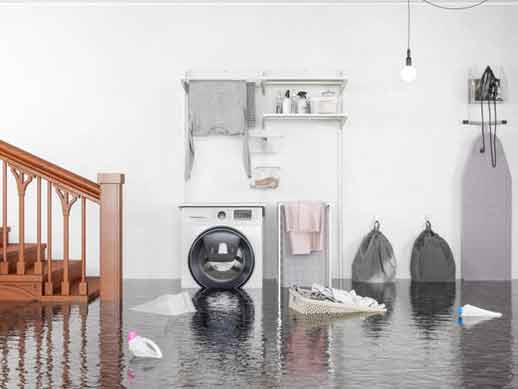
Basement flooding is a common issue that homeowners face, especially during the rainy season. Apart from the inconvenience, it can cause damage to your property and make it vulnerable to structural damage. Unchecked water damage can lead to mold growth, foundation damage, and damage to electronics and appliances.
Here we will explore tips you can follow to prevent basement flooding and keep your home safe and dry.
Identify Causes of Basement Flooding
Before we explore the tips for preventing basement flooding, let’s take a look at some of the common reasons for its occurrence:
- Heavy rainfall or snowmelt
- Blocked gutters and downspouts
- Sewer backups
- Sump pump failure
- Cracks in foundation or walls
Once you know the cause of basement flooding, you can take necessary steps to prevent it.
Preventing Basement Flooding
Ensure Proper Drainage
One of the most important steps you can take to prevent basement flooding is to ensure proper drainage. Make sure your gutters and downspouts are clean and free from debris to allow proper water flow. You can also install extensions on downspouts to direct water away from the foundation or have a French drain installed on your property.
Seal Cracks and Leaks
Cracks and leaks in the foundation and walls are another common cause of basement flooding. You can use hydraulic cement or epoxy to seal the cracks and leaks in your basement walls and floors. Make sure to fill all cracks and leaks, no matter how small they are, to prevent water from seeping in.
Install Sump Pump
A sump pump is an essential tool for keeping your basement dry. The sump pump works by pumping excess water out of your basement and away from your home’s foundation. Make sure your sump pump is in good working condition and have a sump pump battery backup system installed to prevent failure during power outages or pump malfunctions.
Install Backwater Valve
A backwater valve is a device that prevents sewage or wastewater from flowing backward into your home during a sewer backup. Installing a backwater valve is essential, especially if you live in an area prone to sewer backups. Make sure to test the valve regularly to ensure it’s in good working condition.
Install Window Well Covers
If your basement has windows, installing window well covers is essential to prevent water from entering your basement. Window well covers will keep debris, leaves, and water out of the window well, making your basement safer and drier.
Keep Your Basement Dry
Keeping your basement dry is essential to prevent water damage. Make sure your basement is well ventilated and use dehumidifiers to keep moisture levels below 50%. Regularly check your basement for water, leaks, or dampness, and promptly fix the problem before it gets worse.

Check your homeowner’s insurance policy to ensure it covers damages caused by water and flooding.
Check Insurance Policy
Basement flooding can cause significant damage to your property, and it’s essential to ensure you have adequate insurance coverage. Check your homeowner’s insurance policy to ensure it covers damages caused by water and flooding. If your policy doesn’t include such coverage, consider purchasing extra flood insurance.
Conclusion
Basement flooding can be a nightmare for homeowners, but following the tips outlined in this article can help you prevent it. From ensuring proper drainage and sealing leaks and cracks to installing a backflow valve, taking preventive measures can save you from expensive repair costs.
Remember to stay vigilant and check your basement regularly for signs of water damage or dampness. By keeping your basement dry, you’re not only preventing damage to your property, but you’re also helping to protect your family’s health.